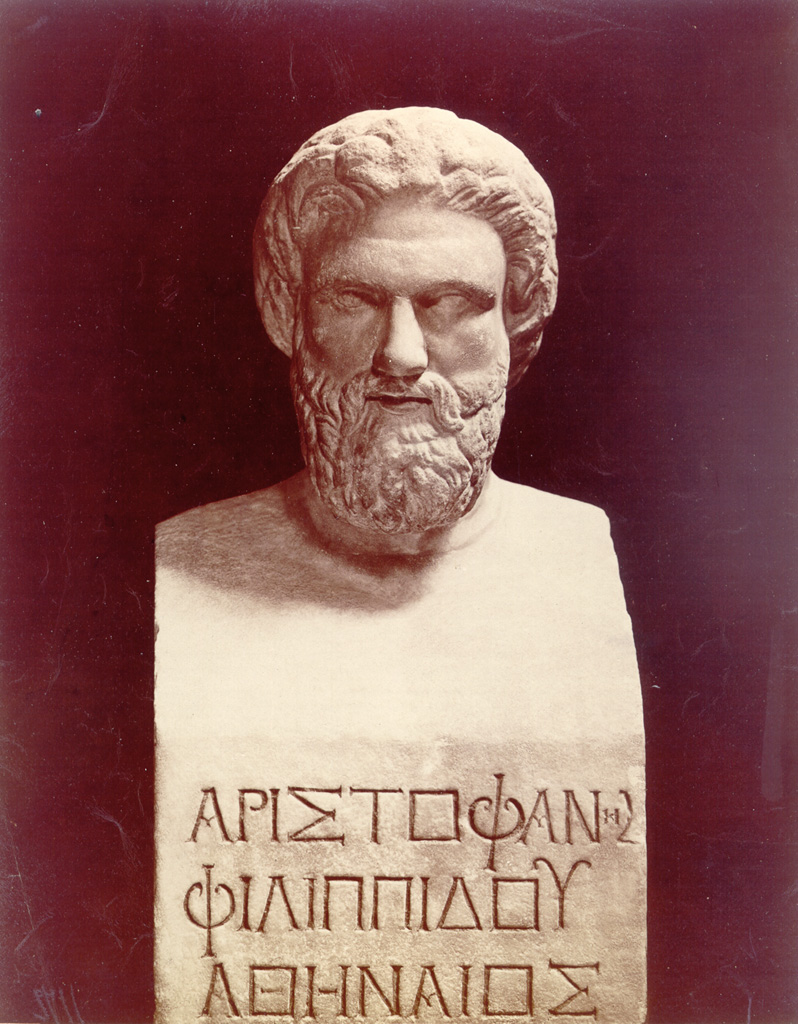Ecclesiazusae
Silent Characters
Assemblywomen (Greek: Ἐκκλησιάζουσαι Ekklesiazousai; also translated as, Congresswomen, Women in Parliament, Women in Power, and A Parliament of Women) is a comedy written by the Greek playwright Aristophanes in 391 BCE. The play invents a scenario where the women of Athens assume control of the government and instate pseudo-communist reforms that ban private wealth and enforce sexual equality for the old and unattractive. In addition to Aristophanes' political and social satire, Assemblywomen derives its comedy through sexual and scatological humor. It is important to note that the play's central concepts of women in government and communism were not legitimate suggestions from Aristophanes, but rather an outlandish premise that aimed to criticize the Athenian government at the time.
The play begins with Praxagora emerging from a house on an Athenian street before daybreak. She is wearing a false beard, men's clothing, and is carrying a walking stick and a lit lantern. The chorus of Athenian women enter one by one, all dressed in similar costume. In order to be more convincing, some women developed tans and stopped shaving their armpits to appear more masculine. One woman brings a basket full of yarn in order to get some work done as the assembly fills up, to which Praxagora chastises her for this decision as it will ruin their cover.
The women are wary of the plan and Praxagora attempts to rally them as they practice speaking as men before the assembly. Praxagora is frustrated by the women's ability to pretend to be men, as they swear to Demeter and Persephone rather than Apollo, address the assembled women as ladies, and complain about the discomfort of their disguises and their thirst. Praxagora decides that she alone is capable of speaking to the assembly and practices a speech decrying the corrupt leaders of the city as selfish and unpatriotic through their acts of war and personal enrichment through public funds. She proposes that the men turn control of the government over to the women because "after all, we employ them as stewards and treasurers in our own households." She further explains that women are superior to men because they are harder workers, devoted to tradition and do not bother with useless innovations. As mothers, they will better protect the soldiers and feed them extra rations, as shrewd negotiators, they will secure more funds for the city. Praxagora impresses the women with her rhetorical skills, and explains that it was learned from listening to orators while living with her husband on the Pnyx, where the Athenian assembly was held. They discuss how they plan to handle opposition and practice how to raise their hands to vote before leaving to attend the assembly by dawn in order to receive pay and a complimentary meal. The chorus of women reiterate their intentions before exiting the stage.
...
Wikipedia

